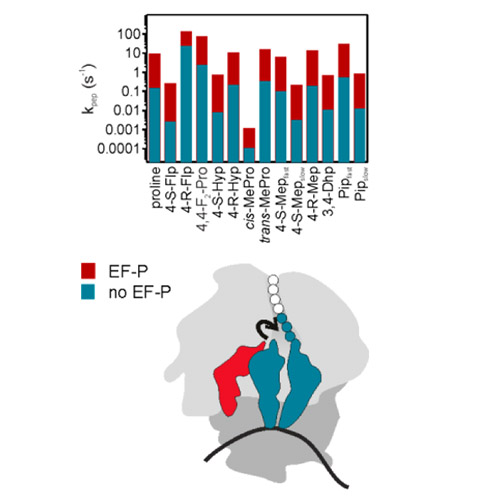Entropic Contribution of Elongation Factor P to Proline Positioning at the Catalytic Center of the Ribosome
18-Sep-2015
J. Am. Chem. Soc., 137 (40), pp 12997–13006, DOI: 10.1021/jacs.5b07427
The peptide bond formation with the amino acid proline (Pro) on the ribosome is slow, resulting in translational stalling when several Pro have to be incorporated into the peptide. Stalling at poly-Pro motifs is alleviated by the elongation factor P (EF-P). Here we investigate why Pro is a poor substrate and how EF-P catalyzes the reaction. Linear free energy relationships of the reaction on the ribosome and in solution using 12 different Pro analogues suggest that the positioning of Pro-tRNA in the peptidyl transferase center is the major determinant for the slow reaction. With any Pro analogue tested, EF-P decreases the activation energy of the reaction by an almost uniform value of 2.5 kcal/mol. The main source of catalysis is the favorable entropy change brought about by EF-P. Thus, EF-P acts by entropic steering of Pro-tRNA toward a catalytically productive orientation in the peptidyl transferase center of the ribosome.











